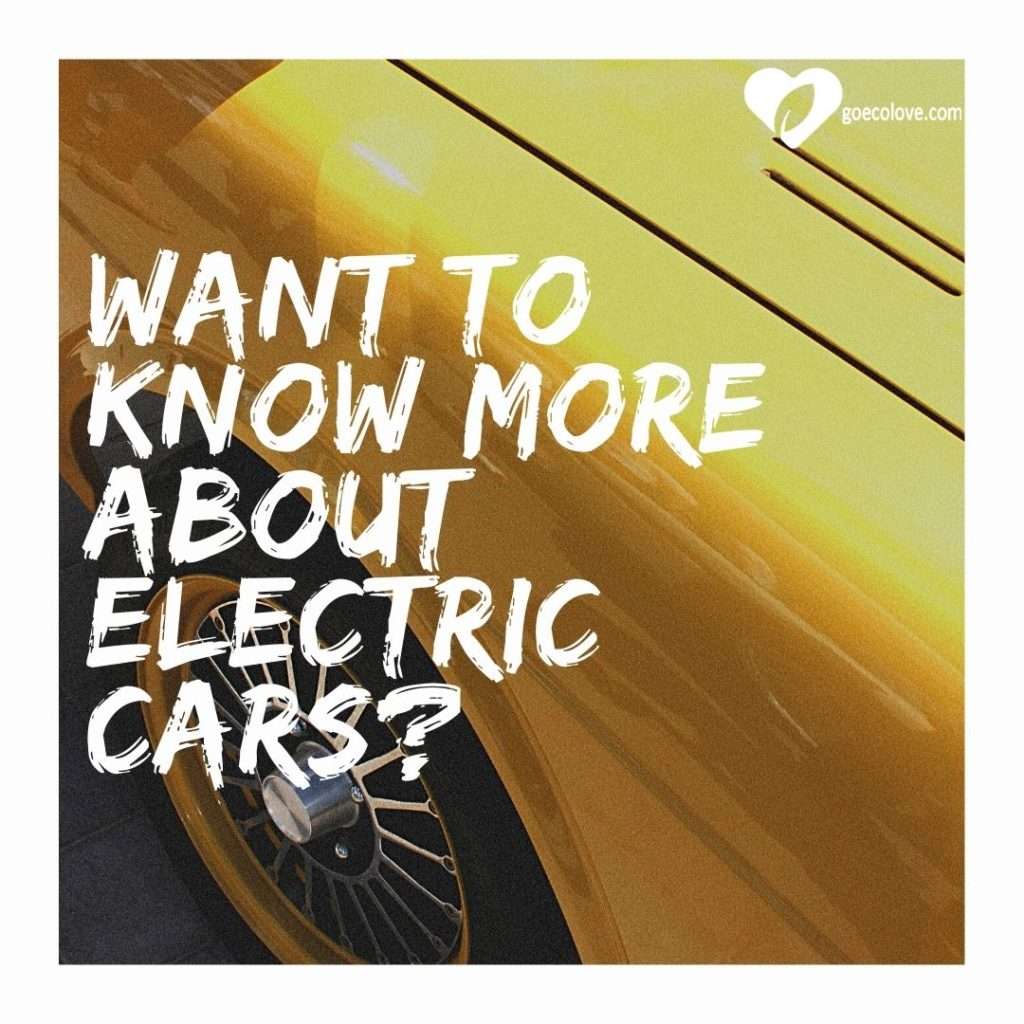The electric car (EV) is a relatively new concept in the world of the automotive industry. EVs are becoming increasingly popular. It is a great way to save on energy costs and impact on the environment. Cars produce a lot of carbon emissions that are ejected into our natural atmosphere, leaving us vulnerable to things like pollution and greenhouse gases. In order to positively help the environment we live in, an electric car is a great step forward. Many countries have established government incentives for plug-in electric vehicles, tax credits, subsidies and other non-monetary incentives as well as laws to discontinue sales of fossil fuel cars, to reduce air pollution and limit climate change.
An electric car or battery electric car is an automobile that uses one or more electric motors. It uses energy stored in batteries to power it. The term “electric car” generally refers to highway-capable automobiles, but there are also low-speed electric vehicles with limitations in terms of weight, power and maximum speed that are allowed to travel on public roads. Charging an electric car can be done at a variety of charging stations; these charging stations can be installed in both houses and public areas. Electric cars or all-electric cars are a type of EV that has a rechargeable battery pack.
EV’s get their power from rechargeable batteries installed inside the car. These batteries are not only used to power the car but also used for the functioning of lights and wipers. Electric cars have more batteries than a regular gasoline car. It’s the same kind of batteries that are commonly used when starting up a gasoline engine. The only difference is the quantity. In EVs, there are many of these batteries which are used to power the engine.
Electric cars have several benefits: a significant reduction of local air pollution, as they do not emit exhaust pollutants such as volatile organic compounds, hydrocarbons, carbon monoxide, ozone, lead, and various oxides of nitrogen which are harmful to the ecosystem. The amount of carbon dioxide emitted is dependent on the emissions of the electricity source and the efficiency of the vehicle.
An electric car such as Nissan Leaf, Ford Focus Electric or Tesla Model S, Chevrolet Volt is a great way for you to not only save money but also help contribute towards a healthy and stable environment.
Let us have a look at advantages and disadvantages of electric cars:
Advantages of an Electric Car
An electric car can be a great way for you, as a consumer, to save a lot of money on gas.
1. No Gas Required
Electric cars are entirely charged by the electricity you provide. Driving fuel-based cars can burn a hole in your pocket as prices of fuel have gone all-time high. With recent fuel shortages, the advantages of EVs are even more highlighted.
2. More Convenient
The electric vehicle is easy to recharge, and you no longer need to run to the fuel station to recharge your car before hitting the road! Even a normal household socket could be used for charging an electric car.
3. Savings
EVs can be fueled for very low prices, and many new cars will offer great incentives to get money back from the government for going green. Electric cars can also be a great way to save money in your own life.
4. No Emissions
The biggest advantage of an electric vehicle is its green credentials. Electric cars are 100% eco-friendly as they run on electrically powered engines. It does not emit toxic gases or smoke in the environment as it runs on a clean energy source. They are even better than hybrid cars as hybrids running on gas produce emissions. EVs will contribute to a healthy and green climate.
5. Popularity
EV’s are growing in popularity. All cars being put on the market are unique, providing you with a wealth of choices moving forward.
6. Safe to Drive
An electric car is safer for us as it lowers the center of gravity and makes it much more stable on the road in case of a collision. In case an accident occurs, one can expect airbags to open up and electricity supply to cut from the battery. This can prevent serious injuries. Also the EVs come with artificial intelligent and predictive technology putting safety as a highest priority.
7. Cost-Effective
The mass production of batteries and available tax incentives further brings down the cost, thus, making it much more cost-effective.
8. Low Maintenance
Electric cars run on electrically powered engines, and hence there is no need to lubricate the engines, anything related to the combustion engine or a ton of maintenance tasks that are usually associated with a gas engine.
9. Reduced Noise Pollution
Electric cars put a curb on noise pollution as they are much quieter. Electric motors are capable of providing a smooth drive with higher acceleration over longer distances.
10. Battery Life
Batteries are an integral part of an electric vehicle. Most electric vehicle batteries are lithium; one could last you up to ten years, and their costs are improving every year.
11. Easy Driving
Electric cars have the simplest driving method. Commercial electric cars come with a transmission consisting of only one really long gear. This effectively eliminates the need to add a clutch mechanism. Therefore, you can operate an electric car with just the accelerator pedal, brake pedal and steering wheel. Simplicity all around!
12. Environmental Impact
The environmental impact of an electric car is zero, meaning you’re reducing your carbon footprint and positively affecting the economy.
Disadvantages of an Electric Car
Although the evidence of the positives has become very clear, there are also some downsides that each individual needs to consider before they decide to make an electric car their next big investment. These reasons are:
1. Recharge Points
Electric fuelling stations are still in the development stages. Not a lot of places you go to on a daily basis will have electric fuelling stations for your vehicle. However, until charging stations are available, be sure to have a charging station that maps where you live and where you frequently go so that you’ll be able to charge your new EV when you need to. With EVs, you really need to plan your drive.
2. The Initial Investment is Steep
As EVs are very new, you may be surprised when you take a look at the sticker price for EVs. Even the more affordable brands can be around £30,000 to £40,000. Though technology is advancing and the price to produce electric cars continues to drop, you still have to pay £10,000 to £50,000 more for an EV than for a gas-powered car.
3. Electricity isn’t Free
Electric cars can also be an irritating inconvenience on your energy bill if you’re not considering the options carefully. Sometimes electric cars require a huge charge to function properly – which may reflect poorly on your electricity bill each month.
4. Short Driving Range and Speed
Electric cars are limited by range and speed. Most of these cars have a range of about 200-300 miles and need to be recharged again.
5. Longer Recharge Time
An electric car takes about 5-7 hours and sometimes even a day to get fully charged, the time taken to recharge them is quite long. Thus, the time investment and necessary planning do put some people off.
6. Silence as a Disadvantage
Silence can be a bit of a disadvantage as people like to hear the noise if they are coming from behind them. An electric car is silent.
7. Smaller cards
Most of the electric cars available today are small. They are not meant for a large family
8. Battery Replacement
Depending on the type and usage of battery, batteries of almost all electric cars are required to be changed every 3-10 years. The batteries are expensive as well.
9. Not Suitable for Cities, Facing Shortage of Power
As electric cars need the power to charge up, the cities that are already facing acute power shortages are not suitable for electric cars.
10. Lower Amount of Choices
The market today for electric cars is expanding, with no signs of slowing down. The vast amount of customization is available with traditional cars. This is likely to change over time, but for many people, it is going to be a disadvantage.
11. Minimal Amount of Pollution
Electric vehicles are also not 100% emission-free; they cause a little amount of pollution indirectly. The batteries and electricity needed for charging are not necessarily generated from renewable energy sources.
12. Some Governments Do Not Provide Money Saving Initiatives to Encourage You to Buy an Electric Car
Hybrid cars are definitely more environmentally friendly than internal-combustion vehicles. Batteries are being engineered to have a long life. When hybrid cars become more widespread, battery recycling will become economically possible. Further research into other energy sources such as fuel cells and renewable fuels are very much needed.
So what do we think at Go Eco Love? We love EVs. We think they are the future. No matter how you look at it, an electric car can save our precious environment and this by itself makes us recommend EVs to you.

